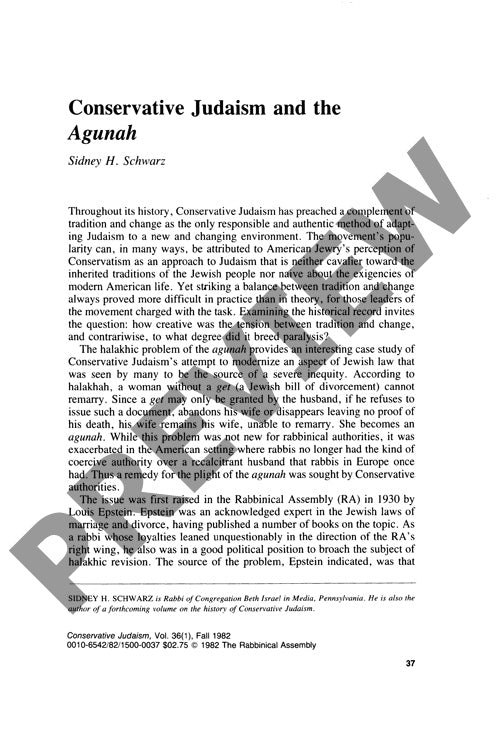Conservative Judaism and the Agunah
Couldn't load pickup availability
For nearly four decades, Conservative Judaism grappled with one of Jewish law's most pressing social justice challenges: freeing agunot—women unable to remarry because their husbands refused to grant them a religious divorce. The movement's attempts to resolve this issue between 1930-1968 reveal a deeper struggle between religious authenticity and modernization. Through analysis of Rabbinical Assembly proceedings, correspondence, and institutional records, a pattern emerges of institutional paralysis despite clear reform imperatives. While Louis Epstein's 1930 proposal sparked extensive theoretical debate, ultimately leading to the 1968 conditional marriage clause, only one actual agunah case ever reached the Conservative beit din. This limited practical impact stemmed from multiple factors: fierce Orthodox opposition that challenged Conservative legitimacy, internal conflicts between the Rabbinical Assembly and Jewish Theological Seminary faculty, and psychological barriers rooted in perceived halakhic inadequacy. Though Conservative Judaism successfully captured American Jewry's religious middle ground, its handling of the agunah crisis demonstrates how concerns about religious legitimacy often trumped the movement's stated mission to adapt Jewish law to modern circumstances.

More Information
-
Physical Description
-
Publication Information
Published 1982
ISBN
-
Publication Credits
Sidney Schwarz

